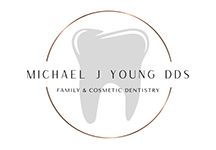 Discomfort in your temporomandibular joints, or TMJ disorder, can be excruciating. The joints connect your lower jaw (mandible) to the temple area on either side of your skull (temporal bone). Along with the muscles that surround them, the joints are responsible for allowing your jaw’s diverse range of movements. Several factors are associated with TMJ disorder, including injury to the jaw area, a misaligned bite (malocclusion), and constant tooth grinding and gnawing (bruxism). As an experienced dentist in Lafayette, Dr. Michael Young understands that TMJ trouble must be taken seriously.
Discomfort in your temporomandibular joints, or TMJ disorder, can be excruciating. The joints connect your lower jaw (mandible) to the temple area on either side of your skull (temporal bone). Along with the muscles that surround them, the joints are responsible for allowing your jaw’s diverse range of movements. Several factors are associated with TMJ disorder, including injury to the jaw area, a misaligned bite (malocclusion), and constant tooth grinding and gnawing (bruxism). As an experienced dentist in Lafayette, Dr. Michael Young understands that TMJ trouble must be taken seriously.
How Do I Know if it’s TMJ Disorder?
A distressed TMJ exhibits symptoms that are similar to many other maladies and is often wrongly diagnosed or not diagnosed at all. Dr. Young can perform a comprehensive diagnostic exam to determine the source of your discomfort if you experience any of these symptoms:
- Frequent headaches, especially in the morning
- A tendency to grind or clench your teeth
- Tender or sore jaw muscles
- Popping or clicking noises when you open and close your jaw
- Pain in the face, neck, shoulders, and/or teeth
- Chronic earaches
- Tinnitus (ringing in one or both ears)
Relieve the Tension
Many of the symptoms of TMJ derive from constant undue pressure. For instance, if you have a misaligned bite (your upper and lower teeth do not fit together properly when your jaw is at rest), then your jaw must hold the teeth in proper position when chewing or speaking. The extra tension often damages the joints, leading to TMJ disorder. Applying heat in the form of a hot water bottle or heating pad will help relax the joint and muscles, easing the tension. Cold works to relieve painful swelling, as well. For best results, try alternating a heating element with an ice pack to relax the area and ease discomfort. If your symptoms persist, call our Lafayette dentist office at (337) 237-6453 to schedule an appointment with Dr. Young.

